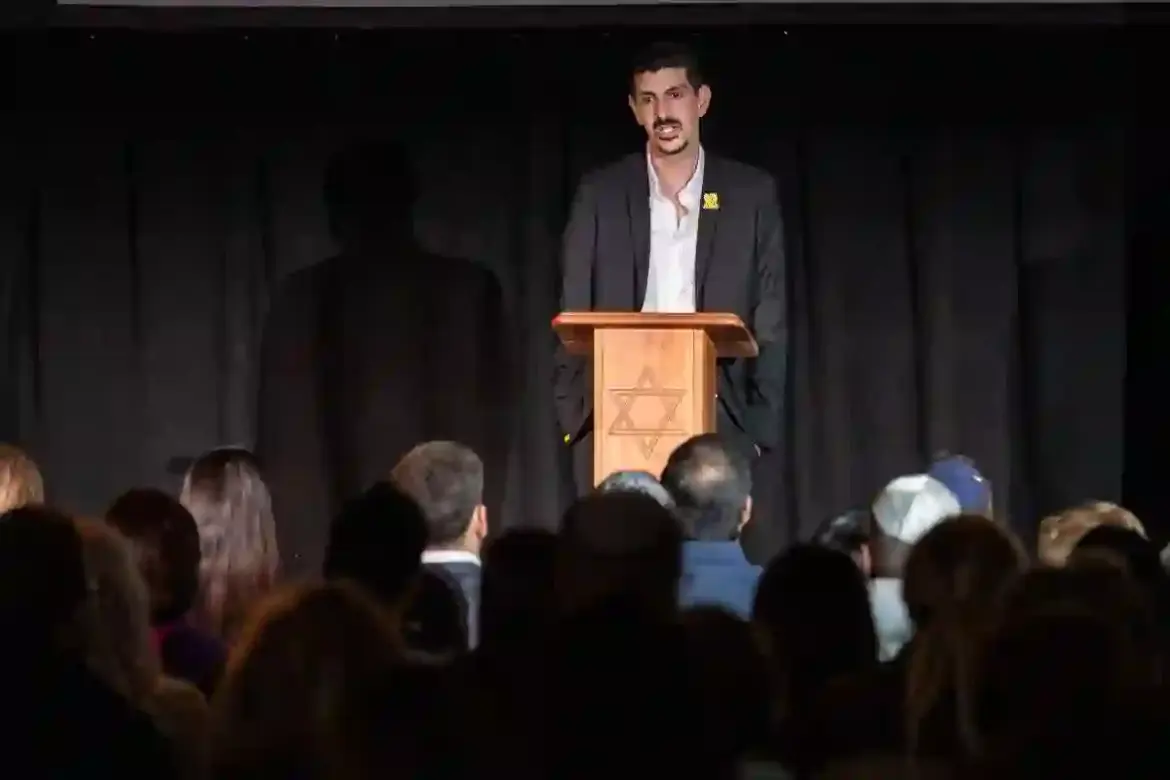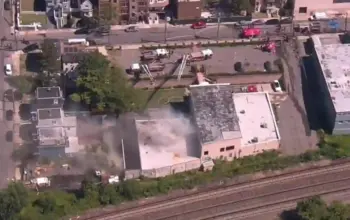Tears filled the eyes of hundreds gathered in a Johannesburg synagogue as Or Levy recounted the ordeal that changed his life forever.
After spending 491 days as a hostage of Hamas, Levy shared the story of his release and the bittersweet realities that came with it.
Brought to South Africa by the local branch of the Jewish National Fund (JNF), a state-linked Israeli organization, Levy’s visit highlights the lasting impact of the 7 October 2023 Hamas attacks.
South Africa itself has been politically vocal on the issue, having filed a genocide case against Israel at the International Court of Justice.
Survivors Sharing Their Stories
Since May 2024, Jewish organizations in South Africa have hosted at least 16 events featuring former captives, survivors, and families of victims of Hamas’ deadly raids.
These gatherings aim to shed light on the human toll of the attacks and to give survivors a platform to speak.
Levy, now in his 30s, described his release in February as “simultaneously the best and worst day of my life.”
It was the day he learned that his wife had been killed in the Supernova Music Festival attack, which claimed over 360 lives, while he was among 40 people taken hostage.
Yet, that same day, he was reunited with his four-year-old son, a moment of profound relief and heartbreak.
The Toll of Hostage Life
“He just told me: ‘Mom is dead’. I know, it’s the hardest sentence to hear from a child,” Levy told the audience, his suit adorned with a yellow ribbon honoring those still in captivity.
The attacks on the festival were part of a wider Hamas-led raid that resulted in 1,219 deaths, mostly civilians, according to AFP figures.
Out of 251 hostages taken, 47 remain in Gaza, with 25 confirmed dead by the Israeli military.
Meanwhile, Israel’s counteroffensive has claimed more than 63,000 Palestinian lives, the vast majority civilians, according to Gaza’s health ministry, figures the UN considers reliable.
Sharing Trauma as Therapy
Levy has been speaking publicly about his experience, including a recent tour in the United States.
“These talks are kind of therapeutic for me,” he told AFP after addressing an audience for an hour. “It’s hard, but it helps.”
He recalled that in all of 2024, he saw sunlight just once—when a tunnel he was held in was bombed, forcing prisoners outside briefly before being returned underground.
During captivity, Levy described being shackled, underfed, and treated harshly.
He lost 20 kilograms and was fed only once a day, often just a small ration of pita bread and canned food shared among four people.
For Diane Wolfson, one of the audience members, Levy’s testimony was particularly moving.
“The more I hear, the harder it gets,” she said.
Advocating for the Return of Hostages
“My main mission is to bring everyone back,” Levy said.
He believes it’s essential for people to understand both his suffering and the ongoing plight of others still in captivity.
South Africa, home to roughly 50,000 Jews, has a proud history of Jewish activists who fought against apartheid, including figures like Joe Slovo and Albie Sachs.
Yet, the Israeli war in Gaza has sparked debate within the community, with some comparing Israel’s treatment of Palestinians to apartheid-era discrimination.
Political Divides Within the Community
Groups like South African Jews for a Free Palestine (SAJFP) argue that events highlighting survivors of the 2023 attacks aim to maintain support for Israel within the Jewish community.
Rina King of SAJFP explained that these events attempt to “counter the dominant narrative” by presenting the militant side as victims and focusing public attention on Hamas’ actions.
“The more people learn, the more support for our cause grows,” King told AFP.
The Complex Role of Survivor Tours
The JNF has organized similar visits to countries such as Australia, Britain, and Canada, featuring other survivors like Eli Sharabi, who endured captivity in the same tunnels as Levy.
Steven Friedman, a political science professor at the University of Johannesburg, critiqued these tours, saying, “They ask traumatized individuals to relive their experiences repeatedly.
While presented as support for victims, the real aim is often to demonize the other side.”
Calls for Unity Amid Division
Before Levy spoke, Ariel Seidman, Israel’s deputy head of mission in South Africa, emphasized the importance of unity, particularly after the ambassador’s recall in 2023.
Levy told AFP that his trip to South Africa was meaningful because it allowed him to reach people outside the countries fully aligned with his cause—places where he would otherwise just be “preaching to the choir.”



